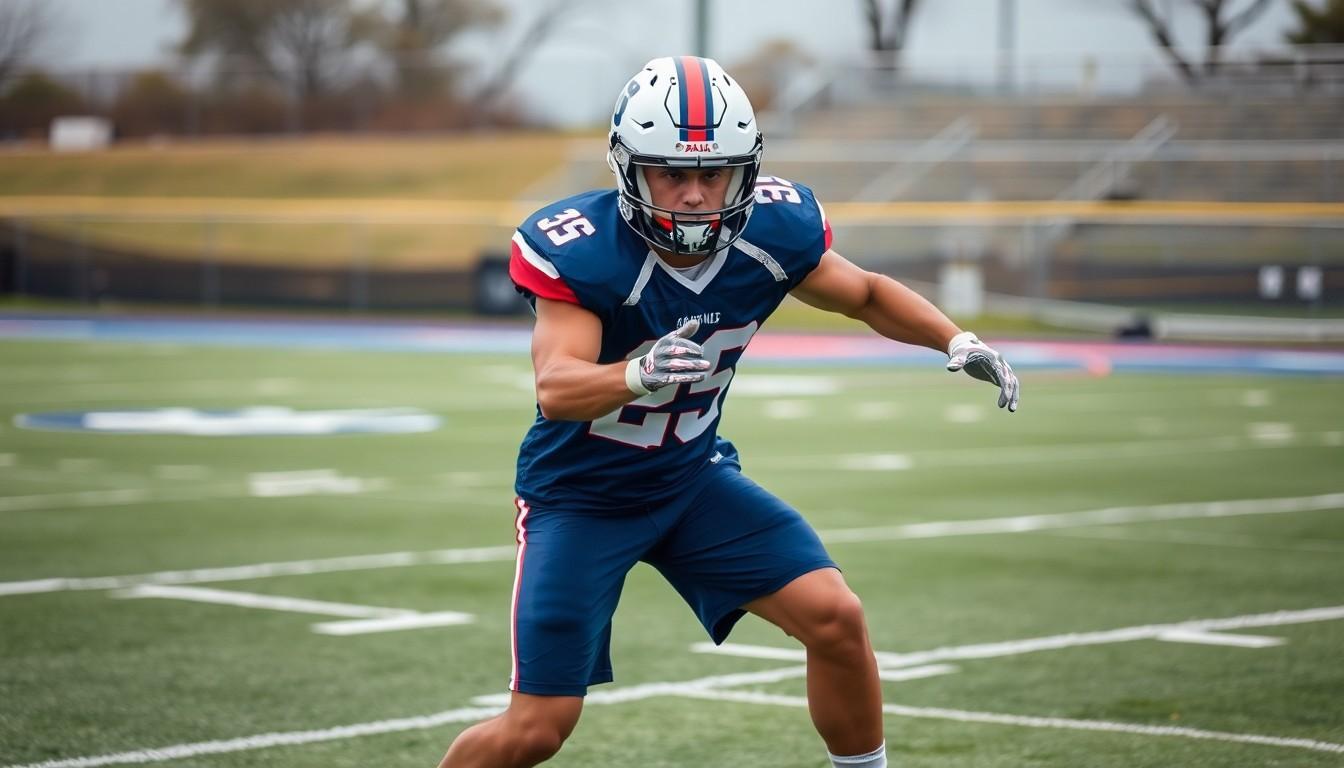Phone:
(701)814-6992
Physical address:
6296 Donnelly Plaza
Ratkeville, Bahamas.

In the world of sports, elite player development isn’t just a fancy buzzword—it’s the secret sauce that transforms raw talent into unstoppable forces. Imagine a young athlete, brimming with potential but lacking direction. With the right guidance, they can go from the playground to the podium faster than you can say “championship.”
But what does it really take to nurture these future stars? It’s not just about drills and sweat; it’s about crafting a holistic approach that includes mental toughness, strategic thinking, and a sprinkle of fun. After all, who said the road to greatness can’t come with a few laughs? Dive into the fascinating world of elite player development and discover how the pros turn ambition into achievement, one training session at a time.
Elite player development transforms raw talent into accomplished athletes. This process involves structured training that nurtures various aspects of an athlete’s abilities.
Elite player development refers to a comprehensive approach designed to enhance an athlete’s skills, knowledge, and performance in sports. It encompasses physical training, mental conditioning, and strategic learning. Coaches focus on tailored programs that adapt to individual needs, ensuring athletes develop holistically. This includes fostering skills such as teamwork, resilience, and game intelligence. Overall, effective elite player development shapes promising athletes into elite competitors.
The significance of elite player development in sports cannot be overstated. Strong programs cultivate future talents who contribute to their teams and organizations. By emphasizing both skill and mental fortitude, athletes develop a competitive edge. This approach leads to improved performance, greater enjoyment in the sport, and enhanced career longevity. Additionally, successful player development positively impacts the sports community by fostering a culture of excellence. Therefore, prioritizing elite player development benefits athletes, coaches, and sports as a whole.

Elite player development incorporates various components necessary for athlete success. Each component plays a significant role in nurturing well-rounded sports professionals.
Skill acquisition focuses on enhancing an athlete’s technical abilities. Custom training programs target specific weaknesses, promoting consistent improvement. Coaches emphasize drills and exercises that mirror game situations, ensuring skills translate effectively. Regular feedback helps athletes understand their progress and areas needing refinement. Developing a strong foundation in core skills leads to increased confidence and performance in competitive environments.
Mental toughness is critical in elite player development. Athletes encounter pressure and adversity throughout their careers, necessitating resilience and composure. Training includes strategies for managing stress and maintaining focus under duress. Visualization techniques and goal-setting practices enhance mental preparedness for competitions. Building mental strength equips athletes to overcome challenges and maintain persistence in pursuit of excellence.
Physical conditioning underpins athletic performance, encompassing strength, endurance, and agility. Tailored fitness regimens address individual needs, enhancing overall physical capabilities. Regular assessments ensure progress is tracked and programs adjusted accordingly. Incorporating functional training and sport-specific exercises maximizes efficiency in movement and injury prevention. Adopting a comprehensive approach to conditioning supports peak performance in high-stakes situations.
Best practices in elite player development focus on effective coaching strategies and comprehensive training regimens. Implementing these best practices enhances athletes’ overall performance and fosters long-term growth.
Coaching strategies significantly impact athlete development. Prioritizing open communication encourages athletes to express thoughts and challenges. Tailored feedback allows coaches to address individual needs and promotes continuous improvement. Utilizing video analysis helps athletes visualize performance and understand areas for enhancement. Additionally, creating a supportive environment fosters resilience, inspiring athletes to embrace challenges rather than fear them. Fostering teamwork and collaboration also enhances performance, as athletes learn to rely on one another’s strengths. These strategies empower athletes to develop both technically and mentally.
Training regimens provide athletes with structured programs designed for specific goals. Customizing these regimens according to each athlete’s strengths and weaknesses ensures optimal improvement. Integrating various training modalities such as strength, conditioning, and skill development enhances overall athletic performance. Furthermore, implementing periodic assessments tracks progress, allowing adjustments to training plans. Incorporating recovery protocols helps prevent injuries, enhancing athletes’ longevity and performance. Balancing intensity with rest periods maximizes training effectiveness, supporting athletes in achieving peak performance. Overall, these training regimens contribute to sustained success in elite player development.
Case studies illustrate the effectiveness of elite player development programs in transforming athletes into high performers. Analyzing successful examples provides insight into the approaches that yield significant results.
Top-tier programs like FC Barcelona’s La Masia emphasize a comprehensive training model. Players undergo intense skill training, focusing on tactical understanding and teamwork. Specific examples show that individualized regimens cater to each athlete’s unique strengths and weaknesses. Additionally, the Australian Institute of Sport integrates psychological resilience training alongside physical preparation. Athletes in this program enhance their decision-making and stress management skills. Success stories from these programs demonstrate that balanced development fosters not only individual talent but also cohesive team dynamics.
Elite player development highlights the importance of adaptability and continuous assessment. Feedback mechanisms in various programs reveal that responsive coaching leads to better athlete performance. Through regular evaluations, coaches can identify areas for improvement, allowing athletes to refine their skills effectively. Collaborative learning encourages athletes to support one another, fostering a culture of resilience. The commitment to mental and physical conditioning proves essential for long-term progression. Adopting a holistic perspective in player development ultimately contributes to maximizing the potential of athletes across sports.
Effective elite player development faces several challenges. High expectations often pressure athletes, impacting their performance and mental health. Limited resources also hinder access to adequate training facilities and coaching expertise. The varying commitment levels among athletes can create imbalances in team dynamics. Competition from other sports or activities further complicates maintaining focus and dedication.
Inadequate funding restricts training programs, limiting access to talented coaches and modern equipment. Time constraints pose another challenge, as many athletes juggle academics and training schedules, leading to burnout. Furthermore, a lack of support from family can create additional stress. Insufficient knowledge regarding skill development and injury prevention may hinder athletes’ progress.
Implementing tailored programs customized to each athlete’s strengths improves skill acquisition and retention. Establishing mentorship opportunities connects younger athletes with experienced players to share knowledge and guidance. Encouraging open communication between coaches and athletes fosters a supportive environment. Periodic assessments allow adjustments to training regimens, promoting sustainable growth. Integrating mental health support into training can enhance resilience, ensuring athletes manage pressures effectively.
Elite player development stands as a cornerstone in the journey of transforming aspiring athletes into high performers. By embracing a holistic approach that prioritizes skill acquisition, mental toughness, and physical conditioning, coaches can cultivate well-rounded athletes prepared to face the demands of competitive sports.
The importance of tailored training programs cannot be overstated, as they address individual strengths and weaknesses while fostering teamwork and resilience. Overcoming challenges like high expectations and limited resources requires innovative solutions and open communication between coaches and athletes.
Ultimately, a commitment to adaptability and continuous assessment will ensure that elite player development thrives, benefiting not just the athletes but the entire sports community. This comprehensive strategy lays the groundwork for future stars to shine on and off the field.